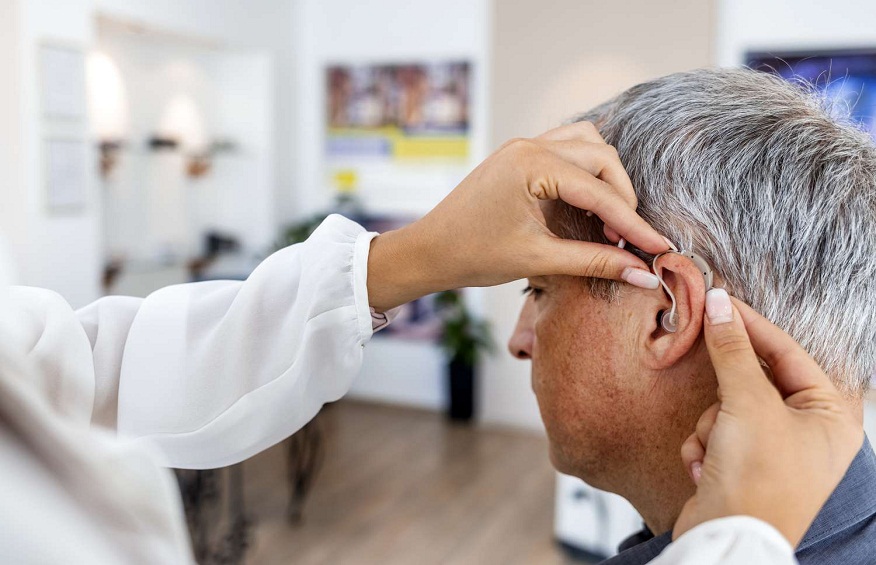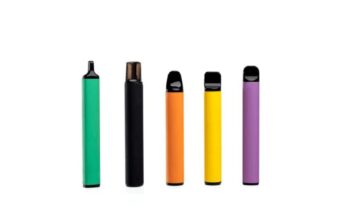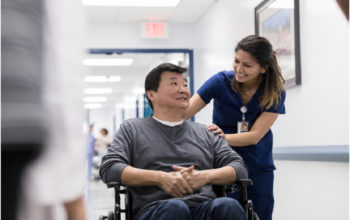Hearing aids are useful instruments that improve the auditory experience for those with hearing loss. Adequate care and maintenance are required to maintain peak performance and lifespan. In this post, we will look at efficient ways to care for your hearing aids, keep them functioning, and extend their lives. In addition, this post will discuss the importance of maintenance in the context of well-known devices such as the ReSound hearing aid.
1. Keep your hearing aids clean.
Regular cleaning is an essential part of hearing aid care. Earwax and debris can build up on the gadget, reducing its function. Use a clean and dry cloth to wipe the outside of your hearing aids gently. Use caution near microphone ports and sound outputs, and avoid using water, cleaning chemicals, or alcohol since these can harm the delicate components. Refer to the manufacturer’s directions for precise cleaning instructions for your ReSound hearing aids.
2. Store hearing aids properly.
When not in use, keep your hearing aids in a secure, dry area. Use the protective case or drying container provided by the manufacturer. This not only protects the gadgets from dust and moisture but also prevents harm from accidental drops or exposure to high temperatures. Proper storage is especially crucial for ReSound hearing aids since it improves their overall durability and performance.
3. Protect your hearing aids from moisture.
Moisture is a major opponent of hearing aids, sometimes causing failures. Purchase a dehumidifier or use drying capsules to eliminate extra moisture from your hearing aids overnight. To avoid water damage, remove your hearing aids before participating in water-related activities such as bathing or swimming. Moisture management is critical for those who use hearing aids because it protects the innovative technology inside the devices.
4. Handle hearing aids with care.
Hearing aids are complicated technological equipment, and harsh handling can cause internal harm. To avoid unintentional drops, put or remove your hearing aids on a soft surface, such as a table or bed. Avoid using undue force on your hearing aids, and be aware of their fragility. Taking these steps can help your hearing aids last longer.
5. Replace batteries quickly.
Users of hearing aids with disposable batteries must change them on a regular basis. Keep additional batteries on hand and replace them as soon as you notice a drop in power. To ensure optimal battery health, persons who use rechargeable hearing aids should follow the manufacturer’s charging intervals. Adhering to a consistent battery maintenance regimen can guarantee that your hearing aids, especially ReSound models, continue to perform properly.
6. Schedule regular professional checkups.
Routine appointments with your audiologist are essential for the continued health and function of your hearing aids. Professionals may do complete examinations, clean difficult-to-access components, and make any necessary changes. This proactive method identifies any concerns before they worsen, ensuring that your hearing aids, such as the ReSound models, continue to give the finest auditory experience possible.
7. Avoid exposure to extreme conditions.
Hearing aids are vulnerable to severe temperatures and humidity. Avoid keeping your gadgets in direct sunlight, hot automobiles, or humid situations, which can cause interior harm. If you anticipate being exposed to such conditions, you should remove your hearing aids and keep them in a secure location.
Conclusion
Caring for your hearing aids has a direct influence on their lifetime and function. By implementing these maintenance guidelines into your daily routine, you can guarantee that your hearing aids, particularly sophisticated devices such as the ReSound, continue to produce clear and bright sound for many years. Regular cleaning, correct storage, and expert checkups are essential components of good maintenance, allowing people with hearing loss to get the most out of their assistive equipment and have a better auditory experience.




